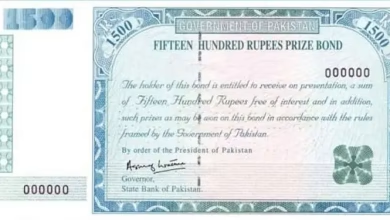Khyber Pakhtunkhwa Journalists Pledge Climate Change Combat Through Storytelling

Peshawar: In the heart of Khyber Pakhtunkhwa, amidst the Hindukush and Himalaya mountain ranges, the environment is vital for livelihoods and well-being. However, climate change threatens this delicate balance, with glaciers retreating, rivers dwindling, and communities facing risks like glacial lake outburst flooding (GLOF) and water scarcity. Media voices from the region are united to call for urgent action to safeguard the environment and ensure a sustainable future.
The Global Neighbourhood for Media Innovation (GNMI), in collaboration with the United States Department of State, organized a 3-Day Sabz Environmental Journalism training in Peshawar. Senior environmental journalist Afia Salam led the training to empower mid-level journalists, digital content producers, and filmmakers actively engaged in climate-related reporting across various media platforms.
The comprehensive program covered topics such as understanding the science of the environment, distinguishing between climate and environment, data-driven and investigative story production, digital storytelling techniques, and strategies for content dissemination. Hands-on learning activities were integrated to enhance participants’ production skills, focusing on incorporating environmental perspectives into their routine reporting.
During the training session, participants referenced a recent report by UNDP Pakistan, revealing alarming trends in glacier melt and glacial lake formation in the region. The report identified a total of 3,044 glacial lakes in Gilgit-Baltistan (GB) and Khyber Pakhtunkhwa (KP), with 33 of these lakes assessed as prone to hazardous glacial lake outburst flooding (GLOF) due to rising temperatures and rapid glacial retreat.
Local journalists in the training also highlighted that as temperatures rise and rainfall patterns shift, the delicate balance of nature is thrown into disarray. Extreme weather events, once rare, now ravage communities in Chitral, Lower and Upper Dir, and other northern parts of KP with increasing frequency, leaving devastation in their wake. Some metropolitan journalists also highlighted the pressing issues of noise and air pollution in Peshawar city, pointing out the multifaceted environmental challenges communities face in the city area.
Participants also brought to the attention of the lead trainer a media report indicating that more than 210 forest fires in Khyber Pakhtunkhwa have ravaged 14,430 acres of land. Alarmingly, the report revealed that 55 of these fires were deliberately started by locals, as reported by the Khyber Pakhtunkhwa Forest Department.
At the end of the session, Afia Salam stressed the need to amplify environmental stories for greater public awareness and spur policy interventions. She noted that because for the people of Khyber Pakhtunkhwa, these changes are not abstract concepts but stark realities etched into their daily lives. From farmers struggling to eke out a living from parched fields to families displaced by floods, the impacts of climate change are deeply felt across the province. She reiterated that, amidst the challenges, there is resilience and determination. Journalists need to spotlight those communities who come together to adapt by finding innovative solutions to mitigate the effects of a changing climate.
Sabz Journalism Fellowship Program aims to empower journalists with the necessary skills and knowledge to report effectively on environmental issues, promoting awareness and understanding among the public. The program also seeks to promote data-driven and investigative reporting and achieve inclusive economic growth and sustainable development by producing and disseminating climate-focused content on digital media platforms.
GNMI is a registered non-profit media development organization that drives social impact through innovative use of media and technology. The organization employs state-of-the-art literacy programs and runs rights-based advocacy campaigns for sustainable, innovative, and empowering solutions on media platforms. With the support of the United States Department of State, the Sabz Journalism Fellowship Program is committed to improving the quality and volume of environmental reporting in Pakistan, ultimately contributing to increased public awareness and better-informed decision-making on environmental issues.





